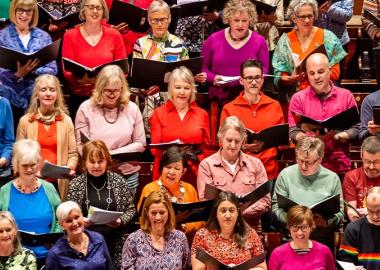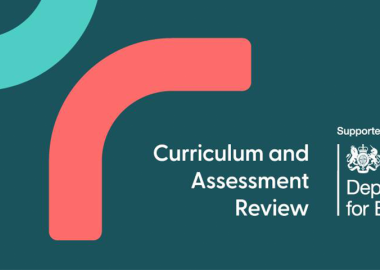Making Music welcomes the publication of the long-awaited guidance to cover the first three stages of the DCMS ‘road map’ to the re-opening of the performing arts
The guidance enables Making Music’s promoter members, who present professional musicians, to livestream from a venue and stage performances outdoors.
However, the guidance is extremely disappointing for the UK’s 900,000 hobby musicians, playing and singing in 16,000 music groups. Groups include choral societies, community choirs, amateur orchestras, brass bands, jazz ensembles, ukulele groups, handbell ringers, folk ensembles, wind bands, and more.
In England, groups with non-professional participants remain completely excluded from rehearsing if they sing or play wind or brass instruments; and can only meet in groups, as permitted generally, where other instruments are concerned. The other countries of the UK have as yet to publish specific guidance, expected shortly.
The distinction between professionals and non-professionals is not justified in the guidance and it is entirely unclear why such a distinction should be made.
An assumption that leisure-time music groups are not able to manage risks in the same way that professional groups are would be inaccurate, as would be the calculation that the economic impact of leisure-time music is not crucial to the recovery of the music sector as a whole.
The leisure-time sector spends £86.4m annually on professional musicians, and is thus essential to a sustainable freelance work portfolio; spends £6.4m per year with music publishers; and supports the sustainability of venues of all kinds, from community buildings and schools to places of worship, dedicated and non-dedicated arts venues of all sizes, from the smallest arts centre to Sage Gateshead, with their hire of space for the purposes of rehearsals and performance.
Leisure-time music is part of the ecology of the music sector which cannot return to full health, unless all parts of it are allowed to re-open.
Leisure-time music groups also provide a crucial social function and are thus central to the recovery of the nation from the ravages to its mental health through the pandemic. Preventing groups from meeting will only exacerbate pressure on health and social care in the coming months, as more and more adults seek help with the consequences of isolation.
We call on the government urgently to permit groups with non-professional participants to re-open for rehearsals in line with the guidance issued to professionals as soon as possible.
---Ends---
For more information contact info@makingmusic.org.uk
Making Music, 8 Holyrood Street, London SE1 2EL
020 7939 6030
info@makingmusic.org.uk
www.makingmusic.org.uk
Twitter: @MakingMusic_UK
Facebook: facebook.com/makingmusicuk
Instagram: @makingmusicuk
Making Music, The National Federation of Music Societies
A company limited by guarantee, registered in England and Wales no. 308632
Registered Charity in England and Wales no. 249219 and in Scotland no. SC038849
Notes to editors
Making Music is the UK association for leisure-time music, with over 3,700 music groups in membership, comprising around 200,000 participants. It represents around 25% of the entire sector (DCMS, 2008, Our Creative Talent).
Making Music, founded in 1935, supports leisure-time music with practical services, artistic development opportunities and by providing a collective voice for its members. www.makingmusic.org.uk










